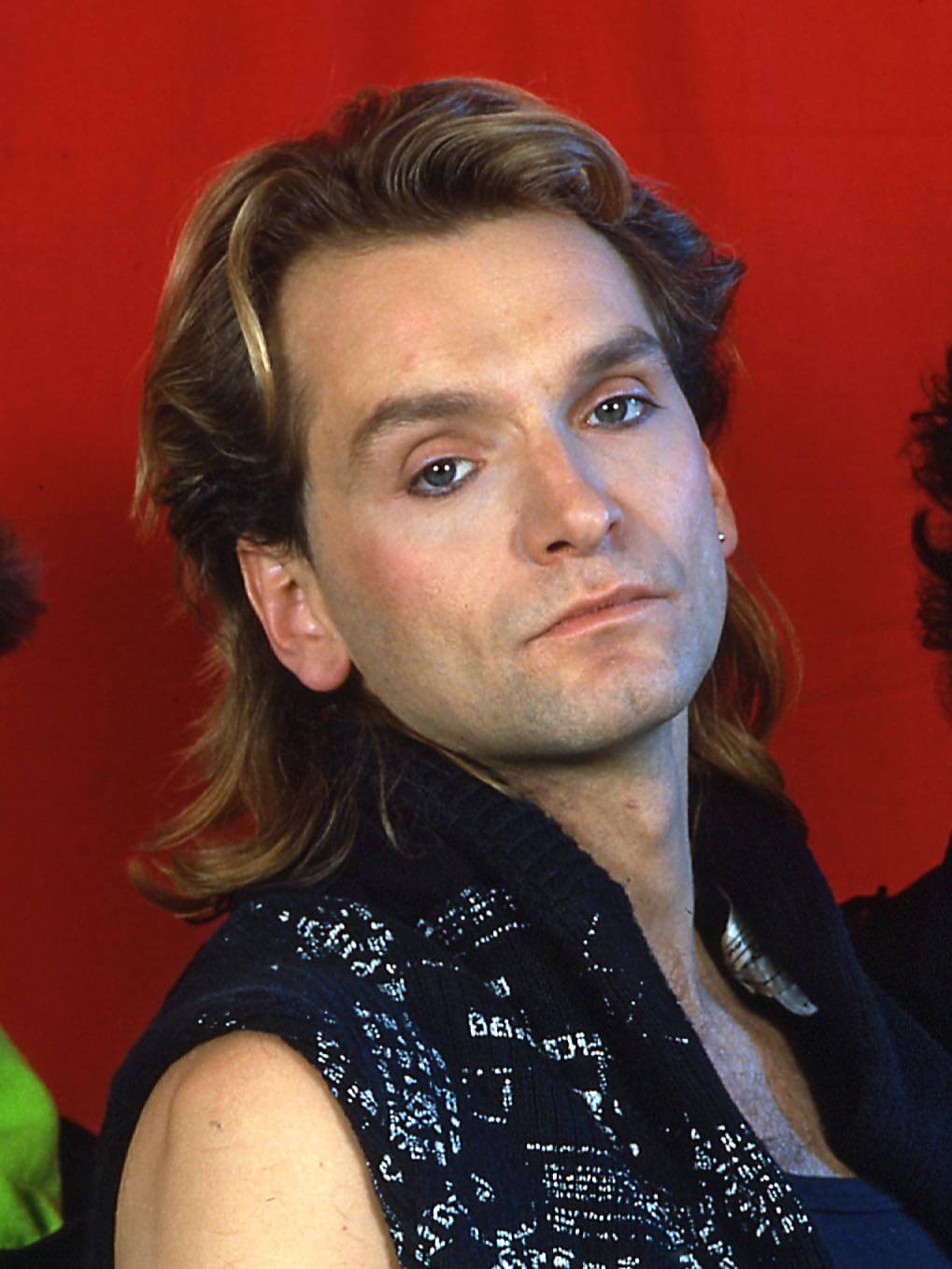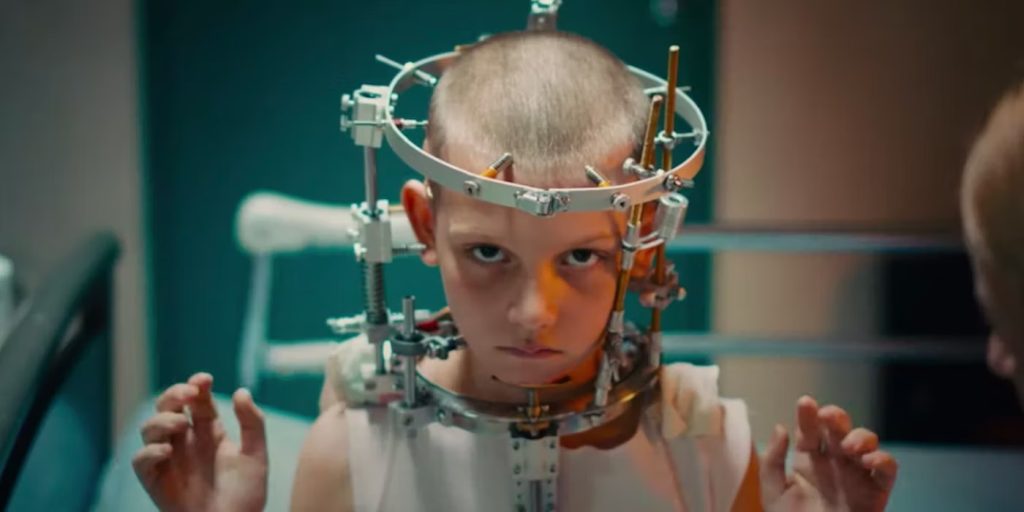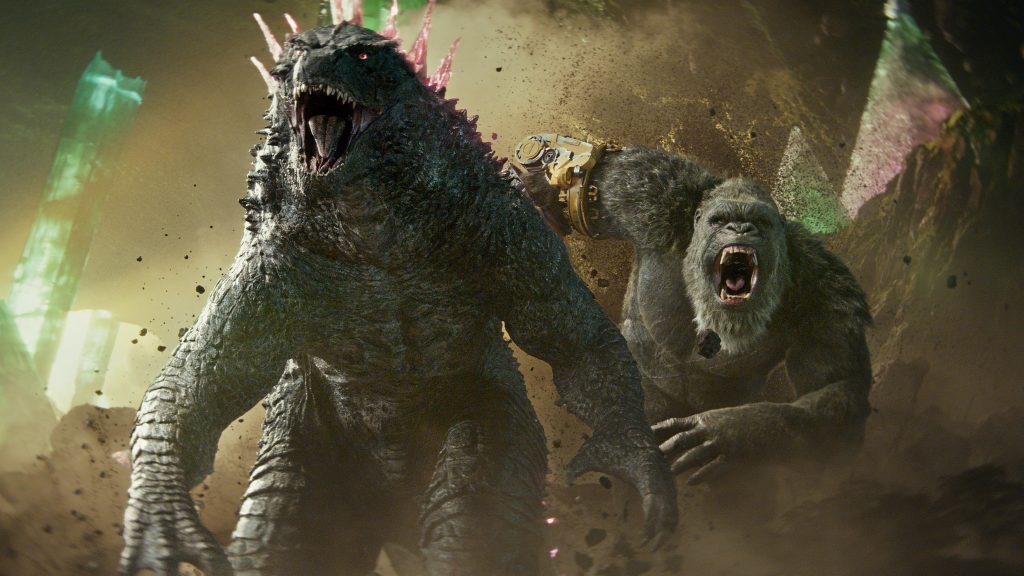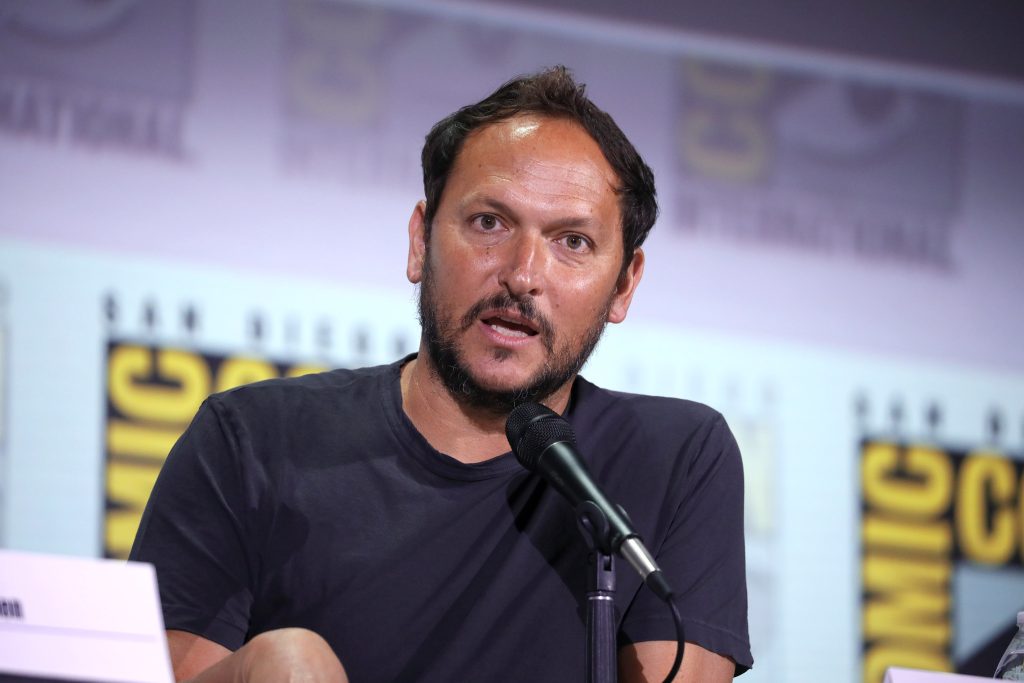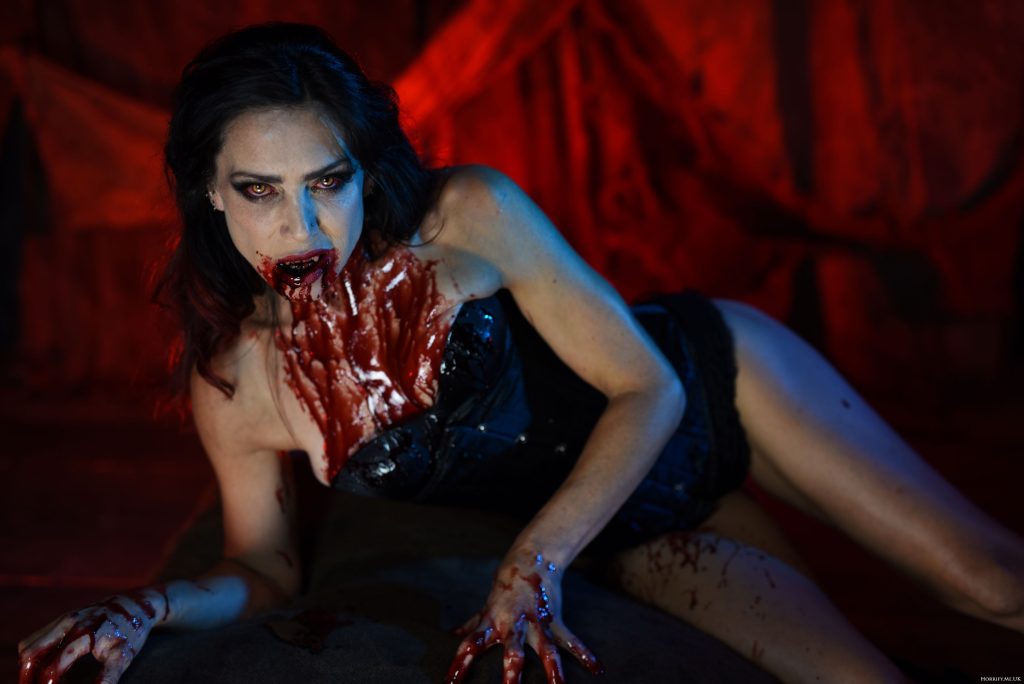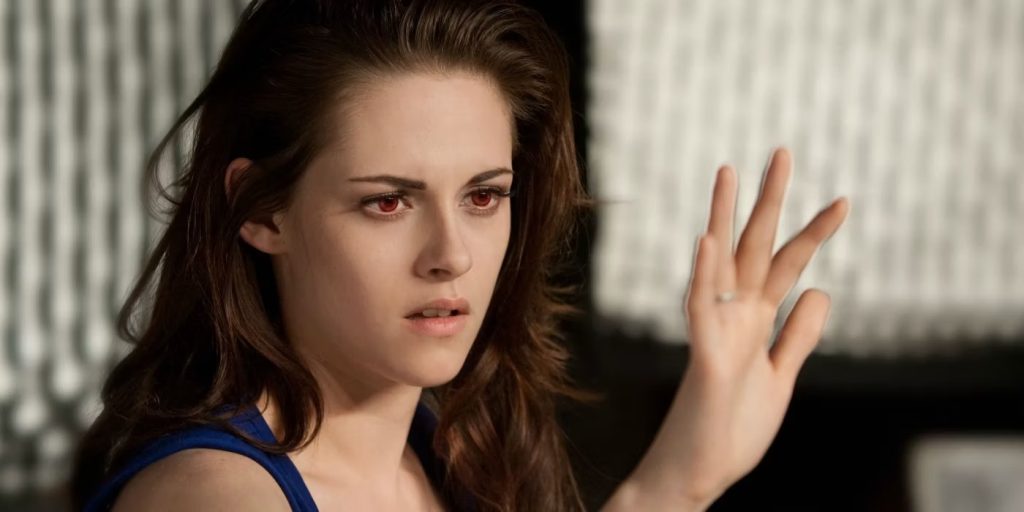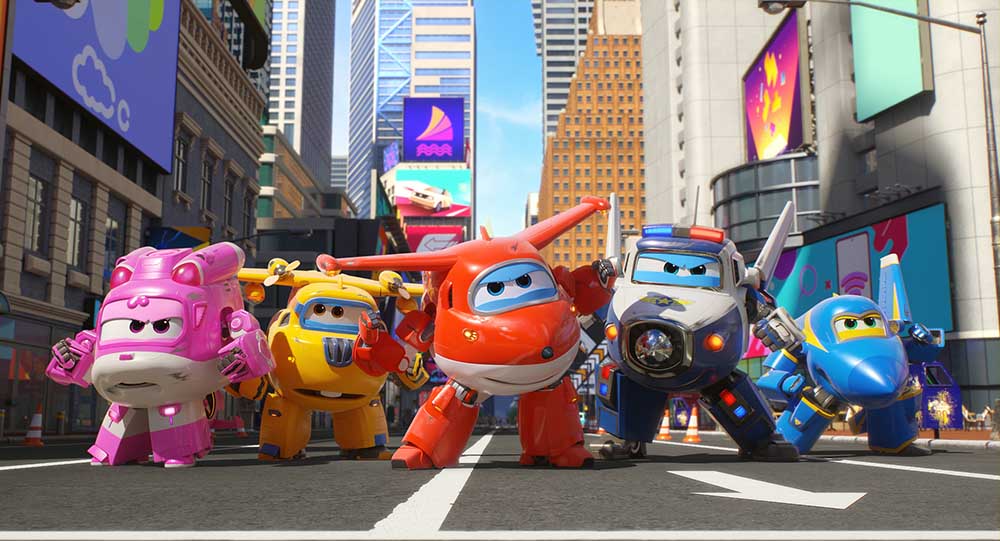New Wave/dance pop band Wang Chung, formed in 1980, rode a wave of success in the mid-’80s, with such hits as Dance Hall Days, Everybody Have Fun Tonight, and Let’s Go, along with the soundtrack to William Friedkin’s 1986 crime thriller To Live and Die in L.A., as well as Fire in the Twilight from the soundtrack to The Breakfast Club.
In the decades since, the band’s music has become synonymous with the ’80s, and featured in dozens of films and TV shows. At the end of last month, Wang Chung released Orchesography, which sees original members Jack Hues and Nick Feldman recording re-imagined versions of their classic cuts with the Prague Philharmonic Orchestra. We spoke with Jack Hues about all this and more.
STARBURST: It seems as though Wang Chung’s music has become shorthand for setting a time and a place in movies and television, through the use of songs like Dance Hall Days or Everybody Have Fun Tonight. What’s that experience like, coming across one of your songs on television or at the cinema?
Jack Hues: It has happened, yeah, but you’re right – “shorthand” is a good word. I guess, back in the ’80s, because our music was on MTV in heavy rotation, as it were, people sort of have it ingrained in their consciousness. So, as soon you hear some little snippet of it, you immediately go back in time.
You had your music featured in films – in Bachelor Party, The Breakfast Club, The Sure Thing, and Innerspace – and it’s been licensed frequently after the fact, but what’s it like to create original music for a film, such as To Live and Die in L.A., or your solo music for William Friedkin’s The Guardian?
Well, those were really great projects, and of a completely different order from just having a song in a movie. To Live and Die in L.A., in particular, was something really special, and I think some of our best work, really. It was really spontaneous.
To put it in perspective: with Wang Chung, we had done the first of the Geffen albums, with Dance Hall Days on it, and we were sort of trying to follow up Dance Hall Days with Dance Hall Days Part Two – or, at least, that’s what the record company wanted us to do. [chuckles] But we were sort of writing all kinds of eclectic stuff, as we tend to do. The way we did the soundtrack was, things started to run into the ground a bit on that project, and so we were about to take some time off. I got a call from Bill Friedkin and had this conversation him. It just came really out of the blue. I think maybe what had happened is that he was working with a Hollywood-type composer and it really wasn’t working out, but he had gotten a copy of our Points on the Curve album, and there was a track on there called Wait, which he loved, and he was using that as a temp track to watch the rushes of the movie he was making, which was To Live and Die in L.A.. He was using that music to underscore what he was watching, and it just sort of become part of the way that he saw the film.
So, I had this sort of bizarre conversation, in that we talked for around an hour. I had a sense of who he was, but there was no sort of introduction, as it were – he just sort of called me out of the blue, where he talked about the movie that he was doing, and about this track, Wait, and he basically just said, “Jack, I want you and your band to go into the studio, and cut an hours’ worth of music, and I’ll just cut it into my movie.”
What a great opportunity! Little did he know that ‘my band’ was me and Nick -basically – and a drum machine. It was really freeing, as an experience. I had a song that I was working on, that I was trying to compress into a ‘hit single’, and that kind of became the backbone of the soundtrack. Instead of compressing it, I expanded it, and it sort of became City of the Angels.
I had a few pieces lying around, and we basically had a week to record this soundtrack, because Geffen was not super-keen on us taking our eye off the ball, in terms of writing a hit single. But, basically, it was the best thing we could have done in terms of trying to relieve that pressure and do something so completely different.
Were you aware of what the film was about, or was it more just, “Go make music”?
Yeah, I was aware of kind of what it was about. He talked to me about the plot – the two detectives – and I think he knew the guy who’d written the book, so I think they were working on it, and as is often the case with Friedkin, they’re not necessarily ‘true’ stories, but they’re based on real life events. When you speak with him – and I’ve spent quite a lot of time with Billy over the years – he’s a really a sort of compelling speaker. He has great stories, and he certainly knows how to inspire his musicians and his actors. He’s great.
One of the few B-sides that you have in your film work is Fire in the Twilight, from The Breakfast Club. Was that track left from the recordings from another album, or was that put together specifically for that film?
It was actually was actually written by Steve Schiff and Keith Forsey – who was actually Billy Idol’s producer and drummer at the time, and was kind of masterminding the whole Breakfast Club soundtrack project. Like a good businessman, you know, he was writing the songs and recording the bands, and generally getting his fingers in as many pies as possible.
They came up with the song, and Nick and I were kind of into the song, but wanted to – for better or for worse – change the lyrics. I think I changed the middle eight or something like that. We tried to make it something our own, as opposed to just doing a straight cover.
It’s kind of unusual, and quite old school in a way: to be sort of writing the songs and bringing the artists in to do it, but The Breakfast Club – as you know – it’s a really interesting movie at all sorts of levels. Kind of groundbreaking, in its way, and that approach to the soundtrack really worked at that time.
On the Points on the Curve album, we worked at the Abbey Road studios, and it took months, and was a really meticulous process, and being in the studio was kind of quiet and focused. Whereas, working with Keith Forsey, it was very much more rock ‘n’ roll, and sort of the band in the studio doing takes. It was much more spontaneous and he had a completely different way of working, but that was really great for us.
I was reflecting in a different interview on how many different times we got to work with great musicians in L.A., and really different musicians. It was a really kind of fertile period for talent and people who were doing great things in the business.
Your new album, Orchesography, features symphonic touches from the Prague Philharmonic Orchestra, which features many of the musicians from the Prague Symphony Orchestra, who are renowned for their film score work – appropriate, given all of the soundtrack discussion we’ve had thus far. How did this project come to be?
It was all because of John Bryan. He contacted us – again, out of the blue, really. He’d done an album with A Flock of Seagulls, and we had a meeting with him in a sort of hipstery part of London, and he was sort of checking me and Nick out. I could tell that he was sort of, “Is it going to work out with these guys?”, but in the end, he was a fan.
He’s one of these guys who just gets these intuitive sort of ideas. He loved Wang Chung, back in the ’80s, and the music’s always been with him, so he went, “Let’s do it.” So, it went from a sort of just doing a couple of tracks to doing the whole album. He suggested us doing not only the hits, but some of the less well-known stuff, as well.
We’ve re-recorded everything, so it’s not just symphonic touches, as you’re saying, but really kind of reworking everything, and bringing the orchestra into the centre of the picture, as opposed to it being a sort of expensive decoration.
Wang Chung’s Orchesography is out now digitally and on compact disc from August Day Recordings. http://www.augustday.net/aday050.html

